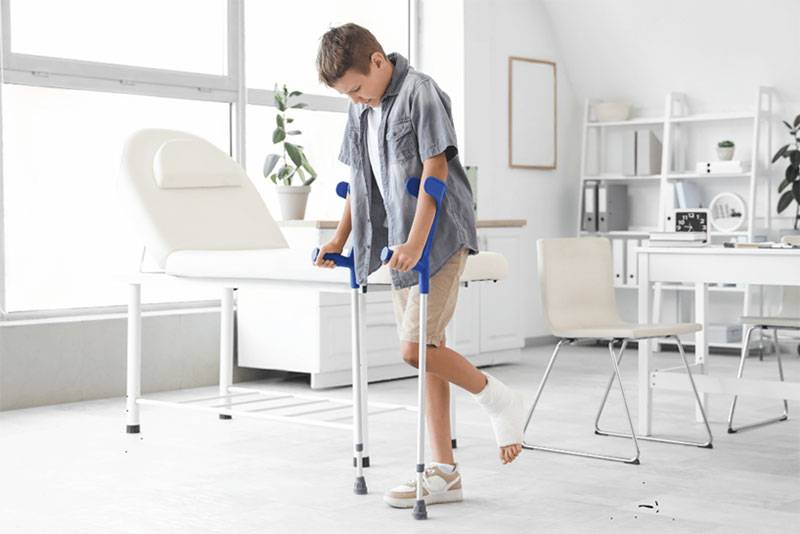What to Do If Your Child Is Injured in an Accident
Few moments in life are more terrifying for a parent than seeing their child hurt. Whether it’s a car crash, a playground fall, a school incident, or even a dog bite, your first instinct is to protect and comfort your child. But once the initial panic fades, you’re often left wondering—what should you do next?
When a child is injured in an accident, the steps you take in the hours and days that follow can have a lasting impact on both their recovery and your family’s right to compensation. Here’s a complete, compassionate guide on what to do if your child is injured in an accident.
1. Get Immediate Medical Help
Your child’s health and safety come first. Even if the injuries appear minor, it’s essential to have them examined by a medical professional. Children can’t always describe their pain clearly, and symptoms like internal bleeding, concussions, or fractures might not be immediately visible.
Call emergency services if the injury seems serious, or visit your nearest hospital or urgent care center. Be sure to tell the doctor exactly what happened—how the accident occurred, when it happened, and any changes you’ve noticed in your child’s behavior or physical condition.
Keep all medical records, prescriptions, and discharge notes. These will be vital later if you decide to pursue a personal injury or child injury claim.
2. Stay Calm and Reassure Your Child
Children often mirror their parents’ emotions. If you stay calm, they’re more likely to feel safe and secure. Offer reassurance and avoid discussing fault or blame in front of your child, especially if others are present—such as school staff, drivers, or witnesses.
Once your child is stable, focus on comforting them. A calm child will also help medical professionals better assess their condition and provide accurate treatment.
3. Report the Accident Immediately
After ensuring your child is safe, make sure the accident is reported to the appropriate authorities or responsible party:
- At school: Notify the principal, teacher, or school nurse. Request a written report of the incident.
- In a car accident: Call the police and obtain an official accident report.
- On private property or playground: Report it to the property owner or management.
- For dog bites: Contact animal control and gather the pet owner’s contact details.
Reporting the incident creates an official record, which will be crucial when filing an insurance claim or pursuing legal action.
4. Gather Evidence Right Away
Evidence is key to proving how and why the accident occurred. If possible, collect the following:
- Photos of the accident scene, your child’s injuries, and any hazards (like broken equipment or slippery surfaces).
- Contact information of witnesses who saw what happened.
- Copies of reports from police, schools, or property owners.
If your child was hurt in a car accident, record details such as the other driver’s license plate number, insurance information, and vehicle description. The more evidence you have, the stronger your child injury claim will be.
5. Keep Detailed Records of Everything
From the moment the accident happens, start a file for all related documents and communications. Include:
- Medical records and receipts for treatment, medication, or therapy
- Travel costs to medical appointments
- Notes about how the injury affects your child’s daily life—such as sleep problems, missed school days, or emotional distress
You should also document your own time off work or additional expenses related to caring for your child. These can all be included in a compensation claim later.
6. Avoid Discussing the Accident Publicly or on Social Media
In today’s world, it’s natural to want to share updates about your child’s health. However, anything you post on social media can be used against you by insurance companies or opposing lawyers.
Keep the details of the accident private until your case is resolved. If you must communicate updates, do so directly with family and trusted friends rather than online.
7. Understand Your Legal Rights as a Parent or Guardian
In most places, parents or legal guardians have the right to file a personal injury claim on behalf of a minor. Because children cannot represent themselves legally, the claim must be made through an adult who can act in their best interests.
Compensation may include:
- Medical and rehabilitation expenses
- Emotional and psychological therapy costs
- Pain and suffering
- Future care needs if the injury causes long-term effects
If the injury occurred due to another party’s negligence—such as a reckless driver, negligent daycare, or unsafe property—you have the right to pursue justice and fair compensation.
8. Contact a Child Injury Lawyer Early
Navigating a child injury case can be emotionally draining and legally complex. A qualified child injury lawyer can guide you through the process, deal with insurance adjusters, and ensure your family’s rights are protected.
Lawyers experienced in child injury claims understand how to gather medical evidence, calculate long-term damages, and negotiate fair settlements. Most work on a contingency basis—meaning you only pay if they win your case—so you can focus on your child’s recovery instead of legal costs.
9. Follow Through with Medical and Emotional Recovery
Even after your child is physically healed, emotional recovery can take time. Accidents can leave lasting psychological scars, such as anxiety, nightmares, or fear of returning to certain places or activities.
Follow up with your child’s doctor, therapist, or counselor as recommended. Demonstrating ongoing care not only helps your child heal but also supports your legal claim by showing consistent treatment and concern.
10. Be Patient but Persistent
Legal claims involving minors can take time to resolve, especially if long-term effects are still being evaluated. Stay patient and let the legal process unfold while focusing on your child’s well-being.
Keep communication open with your lawyer and provide updates about your child’s condition. Every detail matters in securing the compensation your family deserves.
Final Thoughts
When your child is injured in an accident, it’s natural to feel scared and unsure of what to do. But by taking calm, deliberate steps—seeking medical care, gathering evidence, documenting everything, and contacting a qualified lawyer—you can protect both your child’s health and your family’s future.
Accidents can change a child’s life in an instant, but with the right support and legal guidance, recovery is possible. Your actions today can make all the difference in ensuring your child receives the care, justice, and compensation they deserve.




